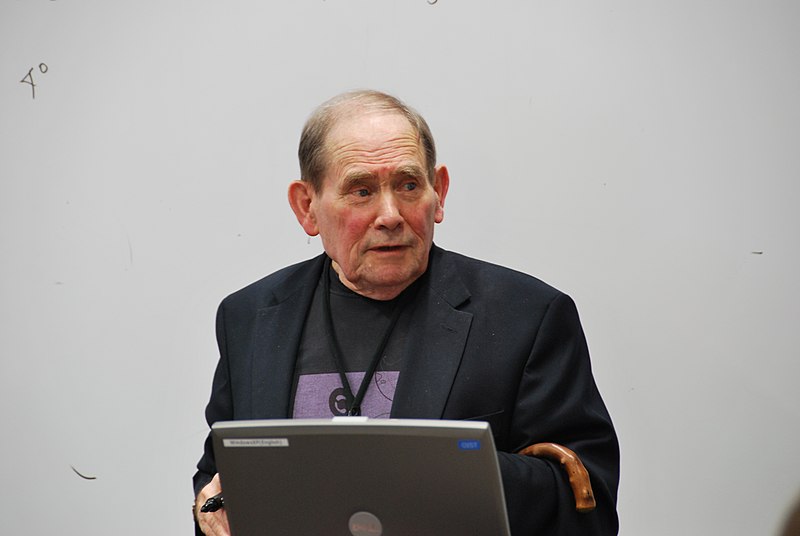After working alongside Francis Crick at the University of Cambridge to reveal the “central dogma” of molecular biology—that our DNA code guides the building of proteins that sustain life in cells—Sydney Brenner sought to map it. So, in the 1960s, the biologist began hunting for an organism that was more complex than bacteria but simple enough to be described completely. He found it in C. elegans: a soil-dwelling, millimeter-long roundworm. Brenner’s researchers traced the lineage of all 959 cells in the adult worm’s body, starting from a single egg cell, and observed how some cells are programmed to die. Two of his colleagues completed the worm’s genome in 1998, and the three shared the Nobel Prize in physiology or medicine in 2002. That work paved the way for the decoding of the human genome in 2003. “I think my real skills are getting things started,” Brenner said. “Past that point, I get rather bored and want to do other things.”
Brenner was born in Germiston, South Africa, to “an illiterate Jewish cobbler” from Lithuania and a mother from Latvia, said The Times (U.K.). A largely self-taught child prodigy, he won a scholarship to medical school in Johannesburg at age 15. He became interested in scientific research during his studies, said The New York Times, and in 1951 earned a scholarship to the University of Oxford to “work on bacteriophages, the viruses that attack bacteria.” Two years later, he drove to Cambridge with three colleagues to see Crick and James Watson’s revolutionary model of the DNA double helix. “I just knew that this was the beginning of molecular biology,” he said. “Everything now was clear as to what to do.”
Soon he was sharing an office with Crick, where he remained for 20 years, “talking nonstop, laughing uproariously, and generating hundreds of ideas,” said The Guardian (U.K.). Crick and Brenner proved that DNA was read as a triplet code, with each group of three DNA letters corresponding to one of 20 protein building blocks. Brenner also discovered messenger RNA, which allows genetic information to be translated into a protein. Brenner was perpetually on the move, both physically—he worked in the U.K., U.S., and Singapore—and intellectually. “If you know too much, you start seeing why things won’t work,” he said in 2000. “That’s why it’s important to change your field, to collect more ignorance.”


























